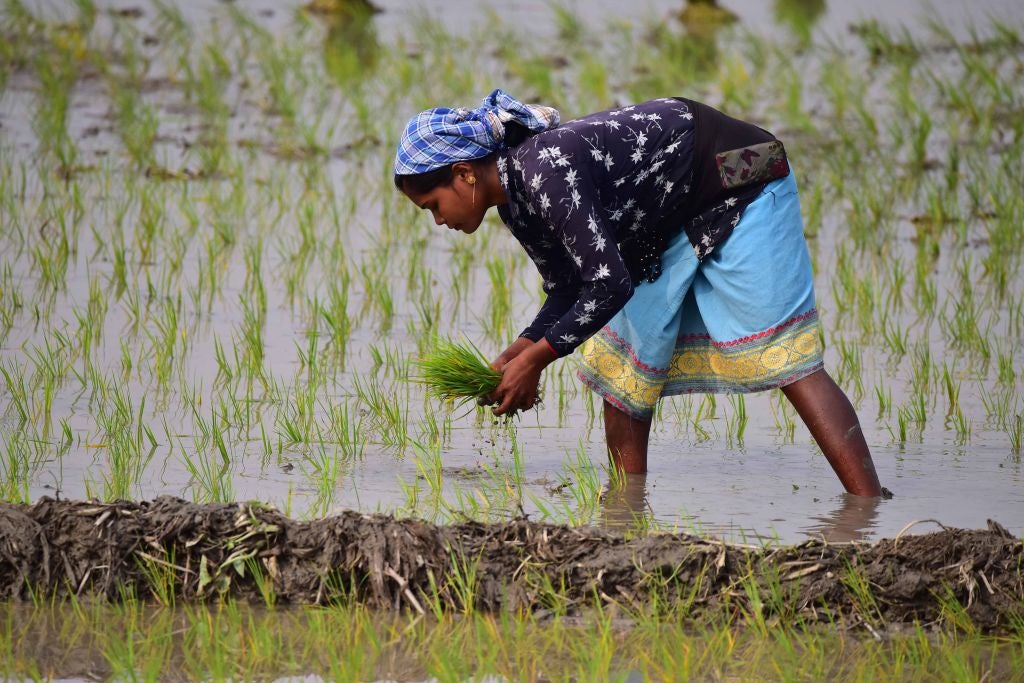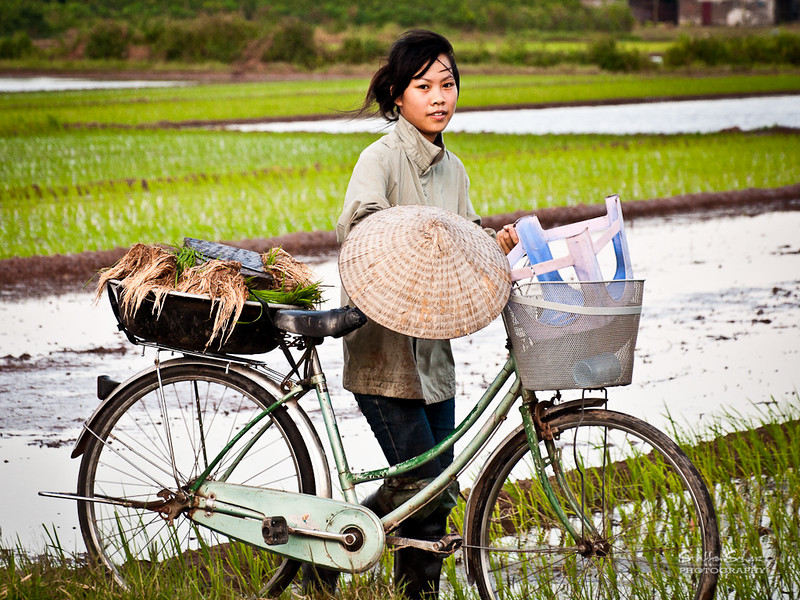Rice production has long been a cornerstone of global agriculture, feeding billions of people worldwide. However, with increasing environmental concerns and the need for sustainable practices, the Rice Team has emerged as a leading force in transforming this vital sector. By integrating cutting-edge technology and sustainable methods, the Rice Team is paving the way for a more eco-friendly and efficient rice production system.
Rice is not just a staple food; it is a lifeline for millions of farmers and communities. The Rice Team's groundbreaking initiatives focus on reducing the environmental impact of rice farming while ensuring food security for future generations. Their efforts are reshaping the agricultural landscape and offering hope for a more sustainable future.
Through innovative strategies and collaboration with global experts, the Rice Team is addressing the challenges of water scarcity, greenhouse gas emissions, and soil degradation. In this article, we will explore the powerhouse behind sustainable rice production, uncovering the key strategies, technologies, and initiatives that make this possible.
Read also:Jenna Jameson Now Exploring The Life Career And Current Endeavors Of A Legend
Table of Contents
- Introduction to the Rice Team
- Challenges in Rice Production
- Sustainable Solutions for Rice Production
- Technology in Sustainable Rice Farming
- Partnerships and Collaborations
- Economic Impact of Sustainable Rice Production
- Environmental Benefits of Sustainable Practices
- Case Studies: Successful Implementation
- Future Directions for Sustainable Rice Production
- Conclusion
Introduction to the Rice Team
The Rice Team is a coalition of experts, researchers, and agriculturalists dedicated to revolutionizing rice production. Established in 2010, the team has been at the forefront of sustainable agriculture, implementing strategies that balance productivity with environmental responsibility. Their mission is to ensure that rice farming remains a viable and sustainable practice for generations to come.
With a focus on sustainable rice production, the Rice Team has developed innovative techniques to address the challenges faced by farmers worldwide. By leveraging technology and fostering partnerships, they aim to create a more resilient and efficient rice farming system.
The team's work is supported by extensive research and collaboration with universities, governments, and international organizations. This multidisciplinary approach ensures that their solutions are both scientifically sound and practical for real-world application.
Challenges in Rice Production
Rice production faces numerous challenges that threaten its sustainability and viability. Water scarcity, climate change, and soil degradation are among the most pressing issues. Traditional rice farming methods consume vast amounts of water and contribute significantly to greenhouse gas emissions, particularly methane.
In addition, the increasing demand for rice due to population growth puts additional pressure on farmers to produce more with limited resources. These challenges necessitate a shift towards more sustainable practices that can meet the needs of the present without compromising the ability of future generations to meet their own needs.
The Rice Team has identified these challenges and is working tirelessly to develop solutions that address them comprehensively. Their efforts are focused on creating a balanced approach that considers environmental, economic, and social factors.
Read also:Does Luke Combs Have Siblings Exploring The Family Life Of Country Music Sensation
Sustainable Solutions for Rice Production
Water Management Techniques
One of the primary focuses of the Rice Team is improving water management in rice farming. Traditional rice cultivation methods require flooding fields, which consumes large amounts of water and contributes to water scarcity in many regions. The team has introduced techniques such as Alternate Wetting and Drying (AWD) to reduce water usage while maintaining crop yields.
AWD involves periodically flooding and drying rice fields, which can reduce water consumption by up to 30%. This method not only conserves water but also reduces methane emissions, making it an environmentally friendly solution.
Additionally, the Rice Team has developed irrigation systems that optimize water distribution, ensuring that every drop is used efficiently. These systems are designed to adapt to local conditions, making them suitable for a wide range of environments.
Reducing Carbon Footprint
Another critical aspect of sustainable rice production is reducing the carbon footprint of farming practices. Rice paddies are a significant source of methane emissions, a potent greenhouse gas that contributes to climate change. The Rice Team has implemented strategies to mitigate these emissions, such as optimizing fertilizer use and promoting organic farming practices.
Organic farming reduces the reliance on chemical fertilizers, which are energy-intensive to produce and contribute to greenhouse gas emissions. By encouraging the use of natural fertilizers and crop rotation, the Rice Team is helping farmers reduce their carbon footprint while maintaining productivity.
Furthermore, the team has developed carbon sequestration techniques that capture and store carbon in the soil, enhancing soil health and reducing emissions simultaneously.
Technology in Sustainable Rice Farming
Technology plays a crucial role in sustainable rice production. The Rice Team leverages advanced tools and techniques to improve efficiency and reduce environmental impact. Precision agriculture, for example, uses data analytics and satellite imagery to optimize planting, fertilization, and irrigation practices.
Drone technology is also being utilized to monitor crop health and detect issues early, allowing farmers to take corrective action before problems escalate. This proactive approach minimizes losses and ensures higher yields.
Moreover, the Rice Team has developed mobile applications that provide farmers with real-time information on weather conditions, market prices, and best practices for sustainable farming. These tools empower farmers to make informed decisions and improve their operations.
Partnerships and Collaborations
The Rice Team's success is largely due to its strong partnerships and collaborations with various stakeholders. By working closely with governments, universities, and international organizations, the team is able to leverage resources and expertise to achieve its goals.
For instance, the team collaborates with the International Rice Research Institute (IRRI) to conduct research and develop new rice varieties that are more resilient to climate change and require fewer inputs. These partnerships ensure that the latest scientific advancements are incorporated into farming practices.
Additionally, the Rice Team works with local communities to implement sustainable practices that are culturally appropriate and economically viable. This grassroots approach ensures that solutions are tailored to the specific needs of each region.
Economic Impact of Sustainable Rice Production
Sustainable rice production not only benefits the environment but also has significant economic implications. By reducing input costs and improving yields, farmers can increase their profitability and improve their livelihoods. The Rice Team's initiatives have been shown to increase farm incomes by up to 20% in some regions.
Moreover, sustainable practices enhance the resilience of rice farming systems, making them better equipped to withstand climate-related shocks. This stability is crucial for ensuring food security and supporting rural economies.
The economic benefits of sustainable rice production extend beyond individual farmers, contributing to the overall growth and development of agricultural communities worldwide.
Environmental Benefits of Sustainable Practices
The environmental benefits of sustainable rice production are manifold. By reducing water usage, minimizing chemical inputs, and lowering greenhouse gas emissions, the Rice Team's initiatives contribute to the preservation of natural resources and the mitigation of climate change.
Improved soil health is another significant benefit of sustainable practices. By promoting organic farming and reducing tillage, the Rice Team helps maintain soil fertility and prevent erosion. This, in turn, supports biodiversity and enhances ecosystem services.
Furthermore, sustainable rice production helps protect water quality by reducing nutrient runoff and pesticide pollution. This contributes to healthier aquatic ecosystems and ensures the availability of clean water for future generations.
Case Studies: Successful Implementation
The Rice Team's efforts have been successfully implemented in various regions around the world, demonstrating the effectiveness of their strategies. For example, in Vietnam, the adoption of AWD techniques has reduced water usage by 30% while maintaining or even increasing yields. Similarly, in India, the promotion of organic farming practices has led to improved soil health and reduced input costs for farmers.
Another notable success story comes from Africa, where the Rice Team's partnership with local organizations has resulted in the introduction of drought-resistant rice varieties. These varieties have enabled farmers to continue producing rice despite erratic rainfall patterns, ensuring food security in the face of climate change.
These case studies highlight the potential of sustainable rice production to transform agriculture and improve the lives of millions of people worldwide.
Future Directions for Sustainable Rice Production
Innovative Research and Development
The Rice Team continues to invest in research and development to drive innovation in sustainable rice production. Ongoing projects include the development of genetically modified rice varieties that are more resilient to pests and diseases, as well as the exploration of new technologies for monitoring and managing rice farms.
Artificial intelligence and machine learning are being explored as tools to enhance decision-making in rice farming. These technologies have the potential to revolutionize the industry by providing farmers with unprecedented insights and capabilities.
Additionally, the Rice Team is investigating the potential of biofertilizers and biopesticides as alternatives to chemical inputs, further reducing the environmental impact of rice farming.
Policy and Regulatory Support
Effective policy and regulatory frameworks are essential for promoting sustainable rice production. The Rice Team advocates for policies that incentivize sustainable practices, such as subsidies for organic farming and tax breaks for water-saving technologies.
Regulatory support is also needed to ensure that sustainable practices are adopted widely and consistently. This includes setting standards for water usage, fertilizer application, and greenhouse gas emissions in rice farming.
By working with governments and international organizations, the Rice Team aims to create a policy environment that supports and encourages sustainable rice production globally.
Conclusion
The Rice Team's commitment to sustainable rice production is transforming the agricultural landscape and offering hope for a more sustainable future. Through innovative strategies, cutting-edge technology, and strong partnerships, they are addressing the challenges faced by rice farmers worldwide and ensuring food security for generations to come.
The environmental, economic, and social benefits of sustainable rice production are undeniable. By adopting these practices, farmers can reduce their environmental impact, improve their livelihoods, and contribute to the global effort to combat climate change.
We invite you to join the conversation and support the Rice Team's mission. Share this article with your network, leave a comment with your thoughts, and explore other resources on sustainable agriculture. Together, we can make a difference and create a more sustainable world.


